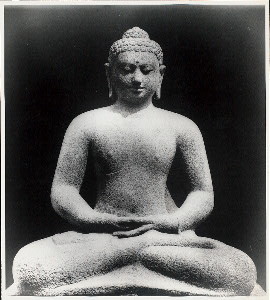 Many people wonder, why should I meditate? What are the benefits? To me, the short answer is: “Because it works.” Then, of course, the next questions are: “How does it work? How will it help?” Simply put, meditation works by increasing awareness. To be mindful is to be aware of one’s experiences, both internal and external experiences. Mindfulness-based meditation helps one to become aware. By being aware, we are able to make better decisions, manage our mood, and activate more parts of our brain.
Many people wonder, why should I meditate? What are the benefits? To me, the short answer is: “Because it works.” Then, of course, the next questions are: “How does it work? How will it help?” Simply put, meditation works by increasing awareness. To be mindful is to be aware of one’s experiences, both internal and external experiences. Mindfulness-based meditation helps one to become aware. By being aware, we are able to make better decisions, manage our mood, and activate more parts of our brain.
Now you may be asking, “But what difference will awareness make? What does the research show in how awareness changes our experiences / our human experience?”
Here’s what the research shows: (Courtesy of mindful.org) *
- Mindfulness Relieves Anxiety and Improves Mood
- A review of 39 previous studies involving 1,140 patients, by Professor Stefan Hofmann of Boston University, concluded that mindfulness is effective for relieving anxiety and improving mood.
- Mindfulness May Keep Brains Young
- A study by Dr. Eilnee Luders at UCLA School of Medicine, published in NeuroImage, shows that long-term mindfulness practitioners have greater brain volume, stronger neural connections, and less atrophy than non-practitioners. This suggest mindfulness may keep brains young and even help prevent dementia.
- Mindfulness can lead to better Decision Making
- A study conducted at the Virginia Tech Carilion Research Institute by Dr. Ulrich Kirk, published in Frontiers in Neuroscience, finds that people who practice mindfulness use different parts of their brains in the decision-making process. This is most visible in their ability to react more rationally, rather than emotionally, when faced with unfair situations.
- Mindfulness Changes Brain Structure
- Research published in 2011 in Neuroimaging by Sara Lazar and her team at Massachusetts General Hospital, reveals that an 8-week mindfulness training program makes measurable changes in brain structures associated with learning and memory, sense of self, empathy, and stress.
- Mindfulness Reduces Stress
- A study conducted by Britta Holzel at Massachusetts General Hospital, and published in Social Cognitive and Affective Neuroscience, finds that mindfulness-based stress reduction can lead to structural changes in the amygdala, a brain structure that plays a crucial role in stress responses.
- Mindfulness Increases Immune Response
- A study by Richard A. Davidson and Jon Kabat-Zinn, published in Psychosomatic Medicine, indicates that mindfulness increases both positive feelings and antibody responses to immune system challenges.
- Mindfulness Enhances Attention, Mood, and Memory
- A 2010 Wake Forest University study, published in Consciousness and Cognition, shows that only 4 days of mindfulness training can enhance the ability to sustain focused attention. It also shows significant improvements in mood, visuo-spatial processing, working memory, and cognition.
- Mindfulness Reduces Irritable Bowel Syndrome
- A 2010 Swedish study published in the Journal of Behavior Therapy and Experimental Psychiatry finds that 10 weeks of mindfulness training results in a 50% reduction in IBS symptoms, as well as other positive outcomes.
- And others:
- A study at Duke University shows that mindfulness can reduce the frequency of binge eating by as much as 75%
- Patients in recovery for substance abuse at the University of Washington were 50% less likely to relapse if they practiced mindfulness
Two of these studies strongly relate to my experience of practicing mindfulness. For instance, the study of meditators who play the ultimatum game concludes:
“In summary, when assessing unfairness in the Ultimatum Game, meditators activate a different network of brain areas compared with controls enabling them to uncouple negative emotional reactions from their behavior. These findings highlight the clinically and socially important possibility that sustained training in mindfulness meditation may impact distinct domains of human decision-making.” (from: “Interoception drives increased rational decision-making in meditators playing the ultimatum game” Frontiers in Neuroscience, 5:49)
The key phrase here is that they were able to “uncouple negative emotional reactions from their behavior.” This seems to me to be one of the main benefits of mindfulness practices like meditation, yoga, and Reiki. The ability to uncouple my emotions from my actions is embodied when my life is in flow – where I feel in control of myself in the healthiest of ways, i.e., where I am aware of how feel (and feel it) however, I mindfully choose how to act in any given situation. Because I have practiced this dance between emotions and action on my meditation cushion, when the opportunity arises in “real” life situations, I’m able to discern between my emotions and my actions and, more often, choose wisely.
The other study that really spoke to me was the one that examined the experience of participants who trained in mindfulness for only 4 days.
A 2010 Wake Forest University study, published in Consciousness and Cognition, shows that only 4 days of mindfulness training can enhance the ability to sustain focused attention. It also shows significant improvements in mood, visuo-spatial processing, working memory, and cognition. (from “Mindfulness meditation improves cognition: Evidence of brief mental training” Consciousness and Cognition, Volume 19, Issue 2, June 2010, pages 597-605.)
In my experience, it doesn’t take a lot of sessions to start gaining the rewards — of course, the more consistent the practice, the better. It is indeed a practice. The more practices, the greater the rewards. The more automatic the responses become and, as some of these studies point out, one will start to experience changes in physiology, including brain chemistry.
Hopefully, you’ll find this research as compelling as I do and you’ll join us on the cushion today!
Wishing you the gift of awareness!
* Resources:
- Mindfulness Relieves Anxiety and Improves Mood
- “The Effect of Mindfulness-Based Therapy on Anxiety and Depression: A Meta-Analytic Review” Journal of Consulting and Clinical Psychology, Volume 78, Issue 2, 2 April 2010, pages 169-183.
- Mindfulness May Keep Brains Young
- “The underlying anatomical correlates of long-term meditation: Larger hippocampal and frontal volumes of gray matter” NeuroImage, Volume 45, Issue 3, 15 April 2009, Pgaes 672-678.
- Mindfulness can lead to better Decision Making
- “Interoception drives increased rational decision-making in meditators playing the ultimatum game” Frontiers in Neuroscience, 5:49
- Mindfulness Changes Brain Structure
- “Mindfulness practice leads to increase in regional brain gray matter density” Psychiatry Research: Neuroimaging, Volume 191, Issue 1, 30 January 20111, pages 36-43
- Mindfulness Reduces Stress
- “Stress reduction correlates with structural changes in the amygdale” Social Cognitive and Affective Neuroscience, Vol. 5, Issue 1, pages 11-17.

 for the past three years. The Wellness House is a welcoming center for people living with cancer. It provides many programs to support cancer patients, survivors, and their families, through support groups, workshops, and a variety of classes in exercise, nutrition, meditation, and other wellness topics. I offer Reiki Sessions as part of the Wellness Tune-Up Program. It is such an uplifting experience to see a client, who entered the room full of anxiety and distress, leave with a feeling of calm and lightness.
for the past three years. The Wellness House is a welcoming center for people living with cancer. It provides many programs to support cancer patients, survivors, and their families, through support groups, workshops, and a variety of classes in exercise, nutrition, meditation, and other wellness topics. I offer Reiki Sessions as part of the Wellness Tune-Up Program. It is such an uplifting experience to see a client, who entered the room full of anxiety and distress, leave with a feeling of calm and lightness.